- Home
- Diana Palmer
Night Fever Page 4
Night Fever Read online
Page 4
Clay reddened. “They wouldn’t! I’d fight…!”
“You’d lose. Think about it. Meanwhile, you’re going to get some counseling,” the juvenile officer said. “We’ve set up appointments for you at the mental health clinic. You’ll be required to go. I hope you understand that this is Kilpatrick’s idea, and that he’ll check on you periodically. I wouldn’t advise you to miss a session.”
“Damn Kilpatrick,” Clay said harshly.
“That’s not a good attitude to take,” Brady warned quietly. “You’re in a lot of trouble. Kilpatrick can be your worst enemy or your best friend. You wouldn’t like him as an enemy.”
Clay muttered something and averted his eyes to the window. He looked as if he hated the whole world.
Becky knew exactly how he felt. She wanted to cry. She clasped her hands together to keep them from trembling.
“Okay, Clay, you can go with your sister for now. We’ll talk again.”
“All right,” Clay said tautly. He got up and reluctantly shook hands with the man. “Come on, Sis. Let’s go home.”
She didn’t speak. She walked to the car like a zombie and got in behind the wheel, barely waiting for Clay to shut his door before she drove away. Inside, she felt sick all the way to her soul.
“I’m sorry I got caught,” Clay said when they were halfway home. “I guess you’re having a pretty hard time of it, being stuck with Granddad and me and Mack.”
“I’m not stuck with it,” she lied. “I love you all.”
“Love shouldn’t make prisons of people’s lives,” Clay said. He glanced sideways at her, with a crafty look in his eyes that she didn’t see. “Really, Becky, I didn’t know what I was getting into.”
“I’m sure you didn’t,” she said, forgiving him anything, just as she always had. She managed a smile. “I just don’t know what to do, how to cope. The district attorney was pretty rough.”
“That Kilpatrick man,” he muttered icily. “God, I hate him! He came to see me at that juvenile hall. He stared right through me and made me feel like a worm. He said I’d wind up just like Dad.”
“You won’t,” she said stubbornly. “He had no right to say such a thing!”
“He didn’t want to let me go,” Clay said hesitantly. “He tried to talk Mr. Brady into putting me in reform school. He got upset when he couldn’t get him to agree. He says anybody who fools with drugs deserves to go to jail.”
“Mr. Kilpatrick can go to hell,” she said fiercely. “We’ll get by.”
“Look,” he began. “I could get a job—after school, you know. I could make some money…”
“I’m doing fine,” she said, almost choking on the words. “You don’t need to get a job,” she added, missing the flash of anger on his face. “I’ll take care of you, just like I always have. You finish school and go to work then. You’ve only got this year to go. That’s not so much.”
“Look, I’m seventeen!” he burst out. “I don’t need looking after anymore! I’m sick of nothing but working around the farm and never having any pocket money. There’s this girl I like and she won’t give me the time of day. You won’t even let me get a damned car!”
“Don’t you cuss me!” she flashed at him. “Don’t you dare!”
“Let me out.” He reached for the door handle, his eyes daring her. “I’ll do it, I swear. Stop this car and let me out!”
“Clay, where are you going?!” she demanded when he was on the pavement.
“Somewhere I can be what I want to be,” he said harshly. “I’m not your little boy, Becky, I’m your brother! You just don’t get it, do you? I’m not a kid you can order around! I’m a man!”
She slumped a little, stretched toward the open door, her hazel eyes weary, her face heavily lined. “Oh, Clay,” she said heavily. “Clay, what am I going to do now?” She broke down, and tears ran down her cheeks.
He hesitated, torn between standing up for his independence and erasing that look from Becky’s face. He hadn’t meant to hurt her, but he wasn’t quite in control of himself these days. He had these violent mood swings….
He slid back inside the car and closed the door, eyeing her warily. He felt suddenly older as he realized how much an act her strength really was. Guilt sat on him like a rock. He should never had added to her burden by acting like a stupid kid.
“Look, it will be all right,” he began hesitantly. “Becky, please stop crying.”
“Granddad will die,” she whispered. She dug for a handkerchief in her purse and wiped her eyes. “He’ll find out, no matter how hard we try to keep it from him.”
“Hey. How about if we move to Savannah?” he suggested, and smiled. “We could build yachts and get rich.”
That brightness lifted her spirits. She smiled back. “Dad would find out that we had money and come looking for us,” she said with graveyard humor.
“They said he’d been arrested. Did you know?” he asked her.
She nodded her head.
He leaned back in his seat, glancing out the window. “Becky, why did he run out on us when Mama died?”
“He ran out on us long before that. You wouldn’t remember, but he was always out with the boys, even when you and Mack were being born. I don’t think he was ever around when we really needed him. Mama gave up eventually.”
“Don’t you give up, Becky,” he said suddenly, turning his gaze back to hers. “I’ll take care of things, don’t you worry.” He was already thinking of ways that he could make enough money to take some of the financial burden off her shoulders. The Harris boys had made one or two suggestions. He didn’t have Becky’s conscience, and there was plenty of money to be made. What she didn’t know wouldn’t hurt her, and he’d be careful not to get caught twice.
“Okay.” She turned into the driveway, wondering how to break the news to their grandfather, how to cope with the future.
She hoped Clay would do what the juvenile officer had told him to. She hoped that being arrested had scared him. Maybe it would keep him straight.
She didn’t know what to do. Life had become too complicated. She wanted to run away.
“What are you thinking?” Clay asked with dark perception.
“I was thinking about the chocolate cake I’m going to bake for supper,” she hedged, and smiled at him. The smile took more effort than Clay would ever know.
CHAPTER THREE
Granddad took the news of Clay’s arrest better than Becky had expected him to. It was a blessing that Clay had been arrested in town, and not at home. To his credit, he didn’t balk at going to school, for once. He got on the bus without an argument, with Mack right behind him.
Becky settled Granddad in his armchair in the living room, concerned at his silence.
“Are you going to be all right?” she asked after she’d given him his pill. “Should I ask Mrs. White to come and sit with you?”
“I don’t need fussing over,” he muttered. His thin shoulders lifted and fell. “Where did I fail your father, Becky?” he asked miserably. “And where did I fail Clay? My son and my grandson in trouble with the law, and that Kilpatrick man won’t stop until he’s got them both in jail. I’ve heard all about him. He’s a barracuda.”
“He’s a prosecuting attorney,” she corrected. “And he’s only doing his job. He just does it passionately, that’s all. Mr. Malcolm likes him.”
Her grandfather narrowed one eye and looked up at her. “Do you?”
She stood up. “Don’t be silly. He’s the enemy.”
“You remember that,” he said firmly, his stubborn chin jutting. “Don’t go getting soft on him. He’s no friend to this family. He did everything in his power to put Scott away.”
“You knew about that?” she asked.
He sat up straighter. “I knew. Saw no reason to tell you or the boys. It wouldn’t have helped things. Anyway, Scott beat the rap. The witness changed his mind.”
“Did he change it—or did Dad change it for him?”
He wou
ldn’t look at her. “Scott wasn’t a bad boy. He was just different; had a different way of looking at things. It wasn’t his fault that the law kept hounding him, no more than it’s Clay’s. That Kilpatrick man has it in for us.”
Becky started to speak and stopped. Granddad couldn’t admit that he’d made a mistake with Scott, so he certainly wasn’t going to admit that he’d made one with Clay. It wouldn’t do any good to have an argument with him over it, but it left her holding the bag and Clay’s future in her own hands. She could see that she’d get little help from Granddad now.
“Becky, whatever your father did or didn’t do, he’s still my son,” he said suddenly, clenching the chair hard with his lean old hands. “I love him. I love Clay, too.”
“I know that,” she said gently. She bent down and kissed his leathery cheek. “We’ll take care of Clay. They’re going to give him some counseling and help him,” she said, hoping she could make Clay go to the sessions without too much browbeating. “He’ll come through. He’s a Cullen.”
“That’s right. He’s a Cullen.” He smiled up at her. “You’re one, yourself. Have I ever told you how proud I am of you?”
“Frequently,” she said, and grinned. “When I get rich and famous, I’ll remember you.”
“We’ll never get rich, and Clay’s likely to be the only famous one of us—infamous, most likely.” He sighed. “But you’re the heart of the whole outfit. Don’t let this get you down. Life can get hard sometimes. But if you see through your troubles, think past them to better times, it helps. Always helped me.”
“I’ll remember that. I’d better get to work,” she added. “Be good. I’ll see you later.”
She drove to the office, inwardly cringing at the thought of the ordeal ahead. She had to talk to Kilpatrick. What Clay had said about Kilpatrick trying to put him in reform school frightened her. Kilpatrick might decide to pursue it, and she had to stop him from doing that. She was going to have to bury her pride and tell him the real situation at home, and she dreaded it.
Her boss gave her an hour off. She phoned the district attorney’s office on the seventh floor and asked to see the man himself. She was told that he was on his way down, to meet him at the elevator and they could talk while he got his coffee in the drugstore.
Elated that he’d deigned to at least speak to her, she grabbed her purse, straightened her flowery skirt and white blouse, and rushed out of the office.
Fortunately, the elevator was empty except for the cold-eyed Mr. Kilpatrick in his long overcoat, his thick black hair ruffled, and that eternal, infernal choking cigar in one hand. He gave her a cursory going-over that wasn’t flattering.
“You wanted to talk,” he said. “Let’s go.” He pushed the ground floor button and didn’t say a word until they walked into the small coffee shop in the drugstore. He bought her a cup of black coffee, one for himself, and a doughnut. He offered her one. But she was too sick to accept it.
They sat down at a corner table and he studied her quietly while he sipped his coffee. Her hair was in its usual bun, her face devoid of makeup. She looked as she felt—washed out and depressed.
“No cutting remarks about my cigar?” he prompted with a raised eyebrow. “No running commentary on my manners?”
She lifted her wan face and stared at him as if she’d never seen him before. “Mr. Kilpatrick, my life is falling apart, and I don’t care very much about your cigar smoke or your manners or anything else.”
“What did your father say when you told him about your brother?”
She was tired of the pretense. It was time to lay her cards on the table. “I haven’t seen or heard from my father in two years.”
He frowned. “What about your mother?”
“She died when the boys were young, when I was sixteen.”
“Who takes care of them?” he persisted. “Your grandfather?”
“Our grandfather has a bad heart,” she said. “He isn’t able to take care of himself, much less anyone else. We live with him and take care of him as best we can.”
His big hand hit the table, shaking it. “Are you telling me that you’re taking care of the three of them by yourself?!” he demanded.
She didn’t like the look on his dark face. She moved back a little. “Yes.”
“My God! On your salary?”
“Granddad has a farm,” she told him. “We grow our own vegetables and I put them up in the freezer and can some. We usually raise a beef steer, too, and Granddad gets a pension from the railroad and his social security. We get by.”
“How old are you?”
She glared at him. “That’s none of your business.”
“You’ve just made it my business. How old?”
“Twenty-four.”
“You were how old when your mother died?”
“Sixteen.”
He took a draw from the cigar and turned his head to blow it out. His dark eyes cut into hers, and she knew now exactly how it felt to sit on the witness stand and be grilled by him. It was impossible not to tell him what he wanted to know. That piercing stare and cold voice full of authority would have extracted information from a garden vegetable. “Why isn’t your father taking care of his own family?”
“I wish I knew,” she replied. “But he never has. He only comes around when he runs out of money. I guess he’s got enough; we haven’t seen him since he moved to Alabama.”
He studied her face quietly for a long time, until her knees went weak at the intensity of the scrutiny. He was so dark, she thought, and that navy pin-striped suit made him look even taller and more elegant. His Indian ancestry was dominant in that lean face, although he seemed to have the temperament of the Irish.
“No wonder you look the way you do,” he said absently. “Worn out. I thought at first it might be a demanding lover, but it’s overwork.”
She colored furiously and glared at him.
“That insults you, does it?” he asked, his deep voice going even deeper. “But you yourself told me that you were a kept woman,” he reminded her dryly.
“I lied,” she said, moving restlessly. “Anyway, I’ve got enough problems without loose living to add to them,” she said stiffly.
“I see. You’re one of those girls. The kind mothers throw under the wheels of their sons’ cars.”
“Nobody will ever throw me under yours, I hope,” she said. “I wouldn’t have you on a half shell with cocktail sauce.”
He lifted a dark eyebrow. “Why not?” he asked, lifting his chin to smile at her with pure sarcasm. “Has someone told you that I’m a half-breed?”
She flushed. “I didn’t mean that. You’re a very cold man, Mr. Kilpatrick,” she said, and shivered at his nearness. He smelled of some exotic cologne and cigar smoke, and she could feel the heat from his body. He made her nervous and weak and uncertain, and it was dangerous to feel that way about the enemy.
“I’m not cold. I’m careful.” He lifted the cigar to his mouth. “It pays to be careful these days. In every way.”
“So they say.”
“In which case, it might be wise if you stopped smearing honey over the mystery man who keeps you. You did say,” he reminded her, “that you were the kept woman of one of your employers?”
“I didn’t mean it,” she protested. “You were looking at me as if I were totally hopeless. It just came out, that’s all.”
“I should have mentioned it to Bob Malcolm yesterday,” he murmured.
“You wouldn’t!” she groaned.
“Of course I would,” he returned easily. “Hasn’t anyone told you that I don’t have a heart? I’d prosecute my own mother, they say.”
“I could believe that, after yesterday.”
“Your brother is going to be a lost cause if you don’t get him in hand,” he told her. “I came down on him hard for that reason. He needs firm guidance. Most of all, he needs a man’s example. God help you if your father is his hero.”
“I don’t know how Clay feels abo
ut Dad,” she said honestly. “He won’t talk to me anymore. He resents me. I wanted to talk to you because I wanted you to understand the situation at home. I thought it might help if you knew something about his background.”
He nibbled the doughnut with strong white teeth and swallowed it down with coffee. “You thought it might soften me, in other words.” His dark eyes pinned hers. “I’m part Indian. There’s no softness in me. Prejudice beat it out a long time ago.”
“You’re a little bit Irish, too,” she said hesitantly. “And your people are well-to-do. Surely, that made it easier.”
“Did it?” His smile was no smile at all. “I was unique, certainly. An oddity. The money made my path a little easier. It didn’t remove the obstacles, or my uncle, who tolerated me because he was sterile and I was the last of the Kilpatricks. God, he hated that. To top it all off, my father never married my mother.”
“Oh, you’re…” she stopped dead and flushed.
“Illegitimate.” He nodded and gave her a cold, mocking smile. “That’s right.” He stared at her, waiting, daring her to say something. When she didn’t, he laughed mirthlessly. “No comment?”
“I wouldn’t dare,” she replied.
He finished his coffee. “We don’t get to pick and choose, and that’s a fact.” He reached out a lean, dark hand devoid of jewelry and gently touched her thin face. “Make sure your brother gets that counseling. I’m sorry I jumped to conclusions about him.”
The unexpected apology from such a man as Kilpatrick brought tears into her eyes. She turned her face away, ashamed to show weakness to him, of all people. But his reaction was immediate and a little shocking.
“Let’s get out of here,” he said curtly. He got her to her feet, purse and all, put the refuse in the appropriate container, and hustled her out of the coffee shop and into one of the elevators standing open and empty.
He closed the doors and started it, then stopped it suddenly between floors. He jerked her completely into his arms, and held her there gently but firmly. “Let go,” he said gruffly at her temple. “You’ve been holding it in ever since the boy was arrested. Let it go. I’ll hold you while you cry.”

 A Cattleman's Honor
A Cattleman's Honor For Now and Forever
For Now and Forever Texas Proud and Circle of Gold
Texas Proud and Circle of Gold Marrying My Cowboy
Marrying My Cowboy Wyoming Heart
Wyoming Heart Christmas Kisses with My Cowboy
Christmas Kisses with My Cowboy Wyoming True
Wyoming True The Rancher's Wedding
The Rancher's Wedding Mercenary's Woman ; Outlawed!
Mercenary's Woman ; Outlawed! Long, Tall Texans: Stanton ; Long, Tall Texans: Garon
Long, Tall Texans: Stanton ; Long, Tall Texans: Garon Lawless
Lawless Blake
Blake Escapade
Escapade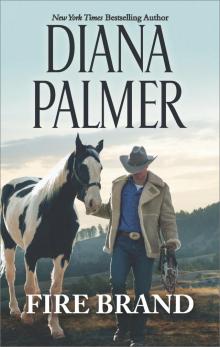 Fire Brand
Fire Brand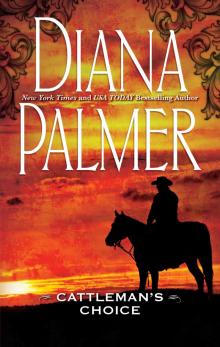 Cattleman's Choice
Cattleman's Choice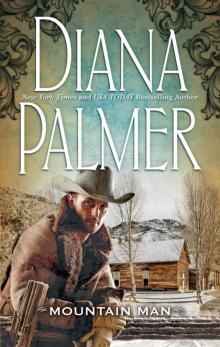 Mountain Man
Mountain Man Long, Tall and Tempted
Long, Tall and Tempted A Love Like This
A Love Like This Miss Greenhorn
Miss Greenhorn Magnolia
Magnolia Lord of the Desert
Lord of the Desert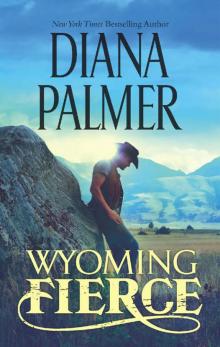 Wyoming Fierce
Wyoming Fierce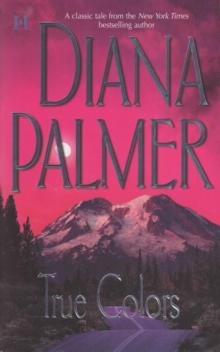 True Colors
True Colors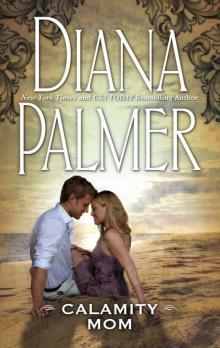 Calamity Mom
Calamity Mom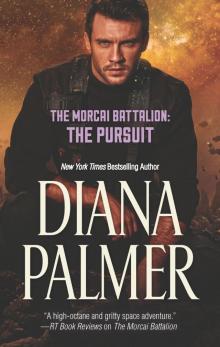 The Pursuit
The Pursuit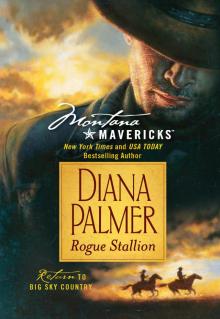 Rogue Stallion
Rogue Stallion Date with a Cowboy
Date with a Cowboy Heart of Winter
Heart of Winter Friends and Lovers
Friends and Lovers Love on Trial
Love on Trial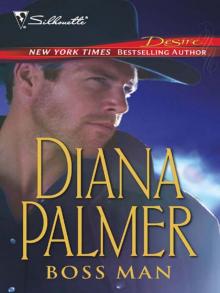 Boss Man
Boss Man Callaghan's Bride
Callaghan's Bride Before Sunrise
Before Sunrise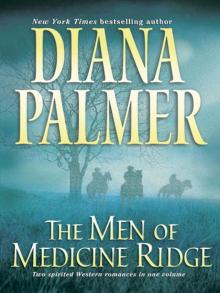 The Men of Medicine Ridge
The Men of Medicine Ridge Texas Proud
Texas Proud Wyoming Tough
Wyoming Tough Passion Flower
Passion Flower Maggie's Dad
Maggie's Dad Donavan
Donavan The Rancher & Heart of Stone
The Rancher & Heart of Stone Long, Tall Texans: Tom
Long, Tall Texans: Tom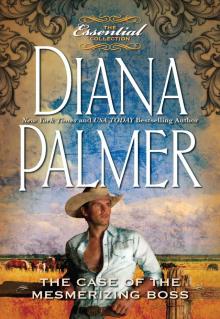 The Case of the Mesmerizing Boss
The Case of the Mesmerizing Boss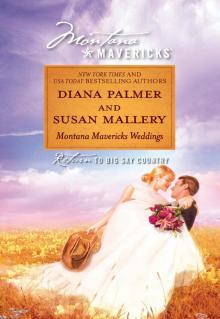 Montana Mavericks Weddings
Montana Mavericks Weddings Redbird
Redbird Wyoming Strong
Wyoming Strong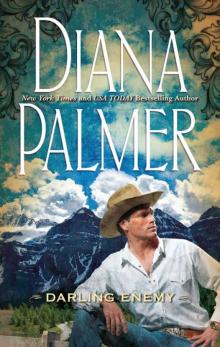 Darling Enemy
Darling Enemy Love by Proxy
Love by Proxy Coltrain's Proposal
Coltrain's Proposal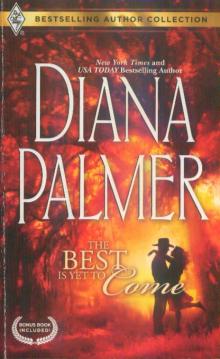 The Best Is Yet to Come & Maternity Bride
The Best Is Yet to Come & Maternity Bride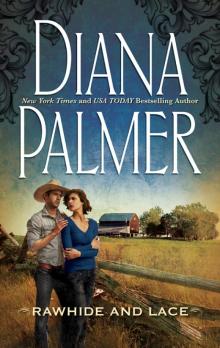 Rawhide and Lace
Rawhide and Lace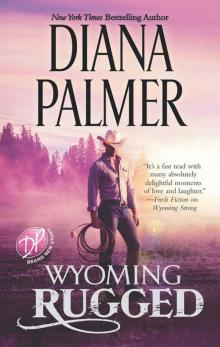 Wyoming Rugged
Wyoming Rugged Patient Nurse
Patient Nurse Undaunted
Undaunted Long Tall Texans Series Book 13 - Redbird
Long Tall Texans Series Book 13 - Redbird Outsider
Outsider Long, Tall Texans: Drew
Long, Tall Texans: Drew Long, Tall Texans--Christopher
Long, Tall Texans--Christopher Merciless
Merciless A Match Made Under the Mistletoe
A Match Made Under the Mistletoe Evan
Evan Hunter
Hunter Now and Forever
Now and Forever Hard to Handle
Hard to Handle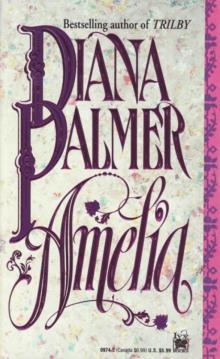 Amelia
Amelia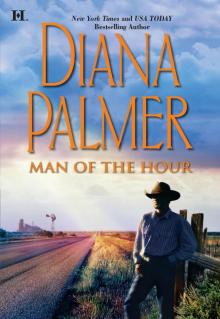 Man of the Hour
Man of the Hour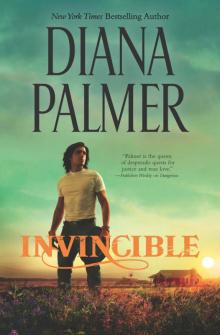 Invincible
Invincible The Maverick
The Maverick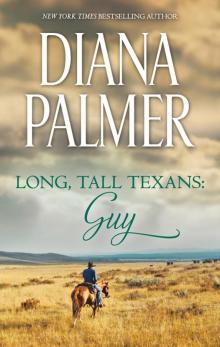 Long, Tall Texans--Guy
Long, Tall Texans--Guy Noelle
Noelle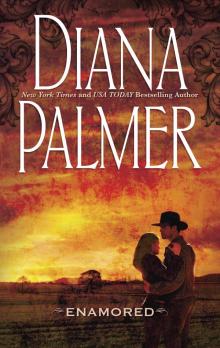 Enamored
Enamored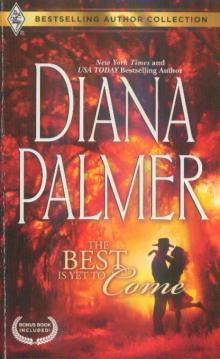 The Best Is Yet to Come
The Best Is Yet to Come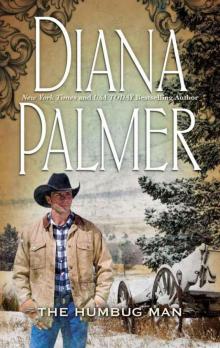 The Humbug Man
The Humbug Man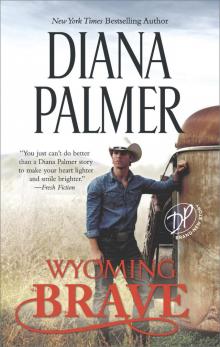 Wyoming Brave
Wyoming Brave Calhoun
Calhoun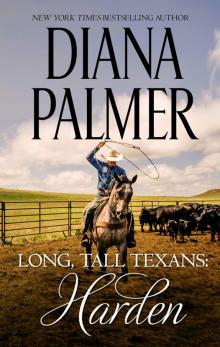 Long, Tall Texans--Harden
Long, Tall Texans--Harden The Reluctant Father
The Reluctant Father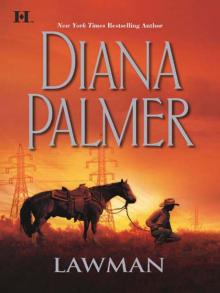 Lawman
Lawman Long, Tall Texans: Hank & Ultimate Cowboy ; Long, Tall Texans: Hank
Long, Tall Texans: Hank & Ultimate Cowboy ; Long, Tall Texans: Hank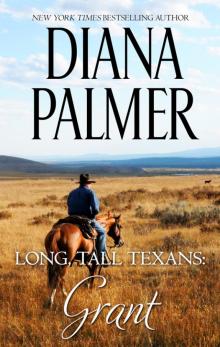 Grant
Grant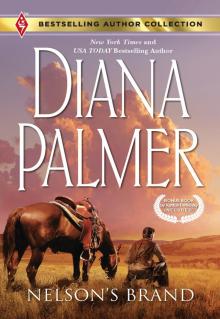 Nelson's Brand
Nelson's Brand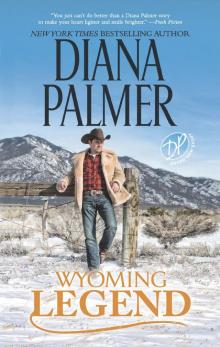 Wyoming Legend
Wyoming Legend Diamond Spur
Diamond Spur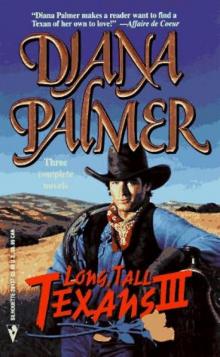 That Burke Man
That Burke Man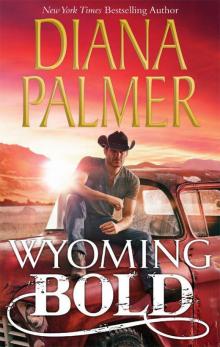 Wyoming Bold (Mills & Boon M&B)
Wyoming Bold (Mills & Boon M&B) Heartless
Heartless Long, Tall Texans--Luke
Long, Tall Texans--Luke To Have and to Hold
To Have and to Hold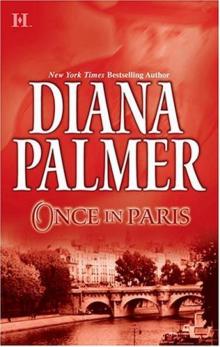 Once in Paris
Once in Paris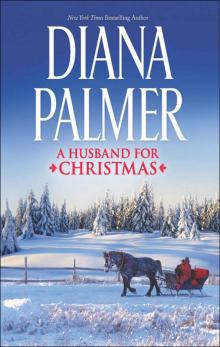 A Husband for Christmas: Snow KissesLionhearted
A Husband for Christmas: Snow KissesLionhearted Night Fever
Night Fever Beloved
Beloved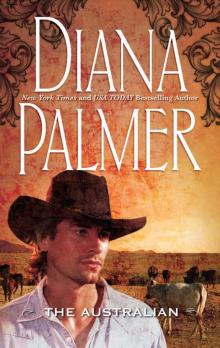 The Australian
The Australian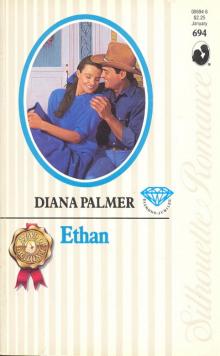 Ethan
Ethan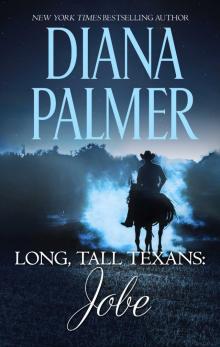 Long, Tall Texans: Jobe
Long, Tall Texans: Jobe Bound by Honor: Mercenary's WomanThe Winter Soldier
Bound by Honor: Mercenary's WomanThe Winter Soldier Tender Stranger
Tender Stranger After Midnight
After Midnight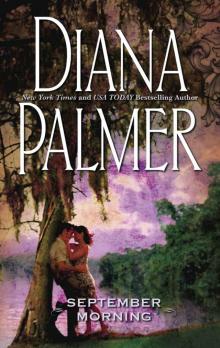 September Morning
September Morning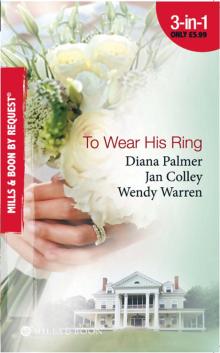 To Wear His Ring
To Wear His Ring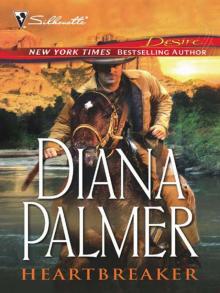 Heartbreaker
Heartbreaker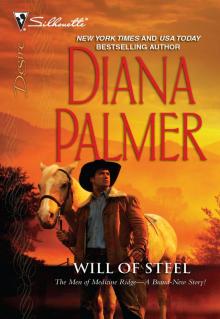 Will of Steel
Will of Steel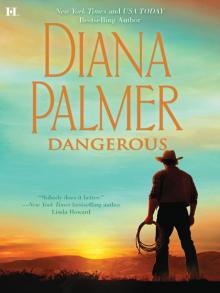 Dangerous
Dangerous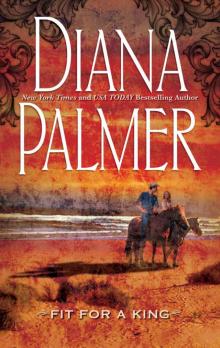 Fit for a King
Fit for a King Diamond in the Rough
Diamond in the Rough Matt Caldwell: Texas Tycoon
Matt Caldwell: Texas Tycoon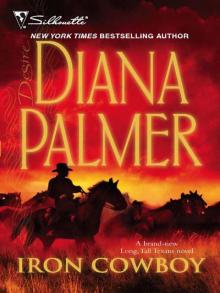 Iron Cowboy
Iron Cowboy Fire And Ice
Fire And Ice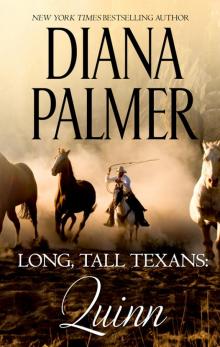 Long, Tall Texans--Quinn--A Single Dad Western Romance
Long, Tall Texans--Quinn--A Single Dad Western Romance Montana Mavericks, Books 1-4
Montana Mavericks, Books 1-4 Denim and Lace
Denim and Lace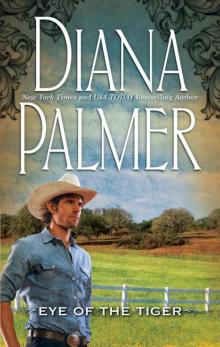 Eye of the Tiger
Eye of the Tiger The Princess Bride
The Princess Bride Long, Tall Texans: Rey ; Long, Tall Texans: Curtis ; A Man of Means ; Garden Cop
Long, Tall Texans: Rey ; Long, Tall Texans: Curtis ; A Man of Means ; Garden Cop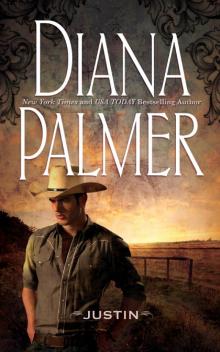 Justin
Justin Nora
Nora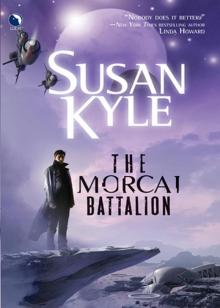 The Morcai Battalion
The Morcai Battalion Heart of Stone
Heart of Stone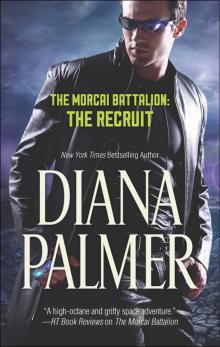 The Morcai Battalion: The Recruit
The Morcai Battalion: The Recruit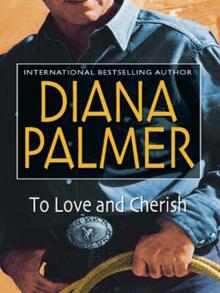 To Love and Cherish
To Love and Cherish Invictus
Invictus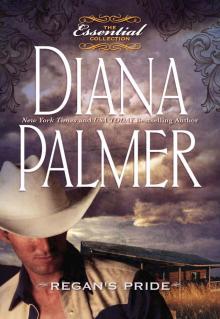 Regan's Pride
Regan's Pride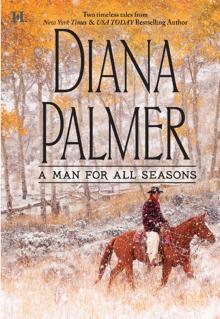 A Man for All Seasons
A Man for All Seasons Sweet Enemy
Sweet Enemy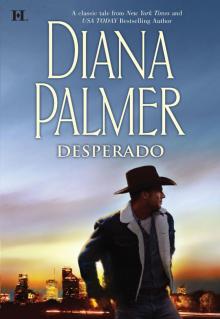 Desperado
Desperado Lacy
Lacy The Winter Man
The Winter Man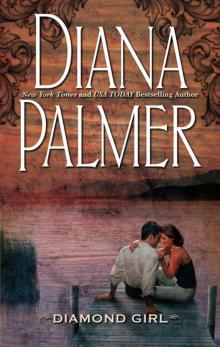 Diamond Girl
Diamond Girl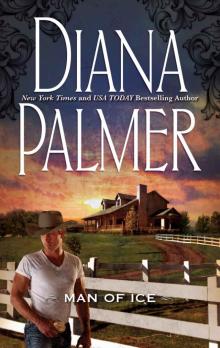 Man of Ice
Man of Ice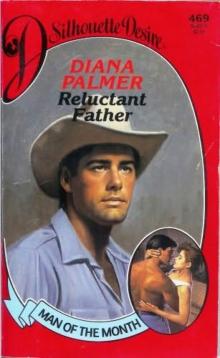 Reluctant Father
Reluctant Father Christmas with My Cowboy
Christmas with My Cowboy Love with a Long, Tall Texan
Love with a Long, Tall Texan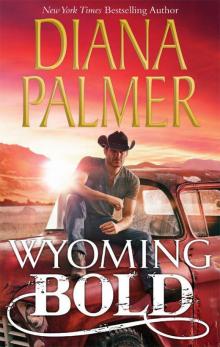 Wyoming Bold wm-3
Wyoming Bold wm-3 King's Ransom
King's Ransom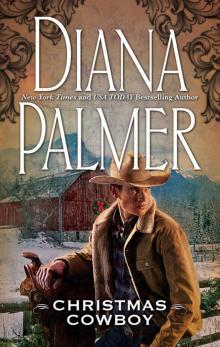 Christmas Cowboy
Christmas Cowboy Heart of Ice
Heart of Ice Fearless
Fearless Long, Tall Texans_Hank
Long, Tall Texans_Hank Unbridled
Unbridled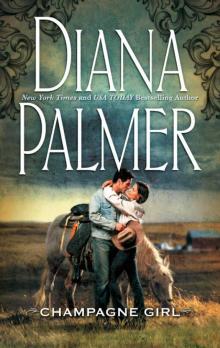 Champagne Girl
Champagne Girl The Greatest Gift
The Greatest Gift Storm Over the Lake
Storm Over the Lake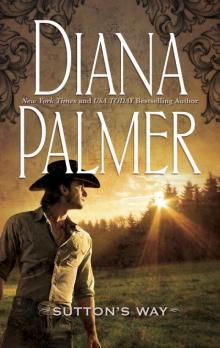 Sutton's Way
Sutton's Way Lionhearted
Lionhearted Renegade
Renegade Betrayed by Love
Betrayed by Love Dream's End
Dream's End All That Glitters
All That Glitters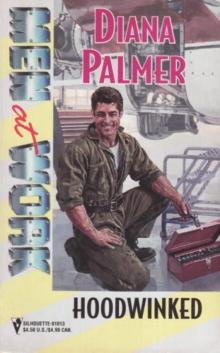 Hoodwinked
Hoodwinked Soldier of Fortune
Soldier of Fortune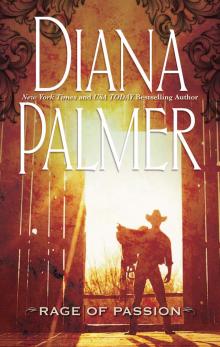 Rage of Passion
Rage of Passion Winter Roses
Winter Roses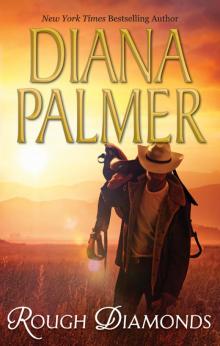 Rough Diamonds: Wyoming ToughDiamond in the Rough
Rough Diamonds: Wyoming ToughDiamond in the Rough Protector
Protector Emmett
Emmett True Blue
True Blue The Tender Stranger
The Tender Stranger Lone Star Winter
Lone Star Winter Man in Control
Man in Control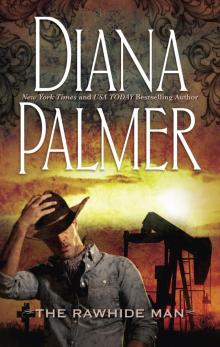 The Rawhide Man
The Rawhide Man Untamed
Untamed Midnight Rider
Midnight Rider Trilby
Trilby A Long Tall Texan Summer
A Long Tall Texan Summer Tangled Destinies
Tangled Destinies LovePlay
LovePlay Blind Promises
Blind Promises Carrera's Bride
Carrera's Bride Calamity Mum
Calamity Mum Long, Tall Texan Legacy
Long, Tall Texan Legacy Bound by Honor
Bound by Honor Wyoming Winter--A Small-Town Christmas Romance
Wyoming Winter--A Small-Town Christmas Romance Mystery Man
Mystery Man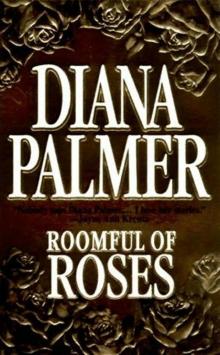 Roomful of Roses
Roomful of Roses Defender
Defender Bound by a Promise
Bound by a Promise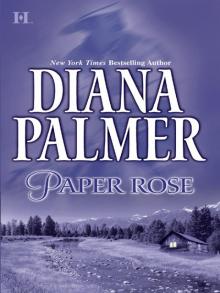 Paper Rose
Paper Rose If Winter Comes
If Winter Comes Circle of Gold
Circle of Gold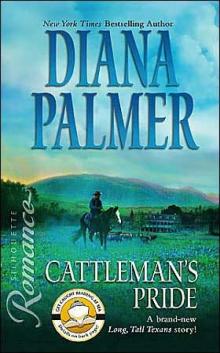 Cattleman's Pride
Cattleman's Pride The Texas Ranger
The Texas Ranger Lady Love
Lady Love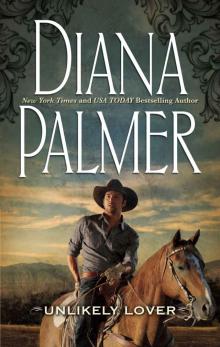 Unlikely Lover
Unlikely Lover A Man of Means
A Man of Means The Snow Man
The Snow Man The Case of the Missing Secretary
The Case of the Missing Secretary Harden
Harden Tough to Tame
Tough to Tame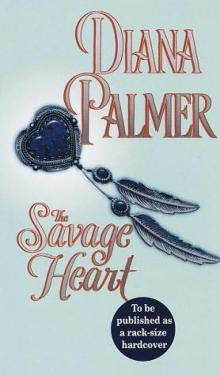 The Savage Heart
The Savage Heart